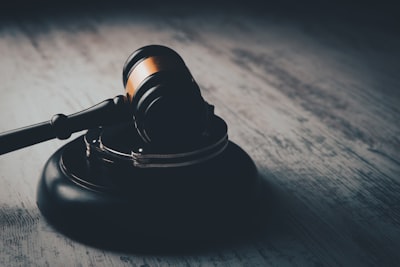Abstract/Introduction
The Supreme Court of the United States has recently upheld a Texas law mandating identity (ID) verification for users accessing pornographic websites. This academic article explores the definitions, stakeholders, and actions underpinning this decision, while critically situating the law within broader legal, historical, and social contexts. The discussion analyzes the potential motivations, consequences, and debates surrounding such legislation, providing a foundation for future scholarly investigation.
Background and Context
Key Concepts Defined:
- ID Verification: The process by which a website requires users to prove their identity, typically by providing government-issued identification, prior to granting access.
- Porn Sites: Online platforms that host or distribute sexually explicit material, often with adult-only access restrictions.
- Supreme Court: The highest federal court in the United States, whose decisions set national precedents.
Legislation addressing minors’ access to explicit materials extends back to the Communications Decency Act (1996) and the Children’s Online Protection Act (1998), both challenged on First Amendment grounds. With the proliferation of the internet, concerns about minors’ exposure to pornography have persisted, resulting in renewed policy efforts such as state-mandated ID verification laws. Texas, following the lead of Louisiana and Utah, enacted legislation requiring adult websites to implement strict age verification. The Supreme Court's recent upholding of this law marks a pivot in the ongoing debate between digital freedom and child protection.
Analysis and Discussion
Subjects and Actions: The main subjects are the Supreme Court, the State of Texas, online pornography providers, and the users (both adult and minor). The central action is the judicial upholding of Texas’s statutory requirement for age and ID verification before granting access to explicit digital content.
Broader Academic Context:
- Legal Perspective: The core debate lies at the intersection of the First Amendment (freedom of speech and access to information) and the state's duty to protect minors (parens patriae). Prior Supreme Court cases (e.g., Reno v. ACLU, 1997) have struck down sweeping restrictions but left open paths for targeted age-verification schemes if narrowly tailored.
- Social Perspective: Concerns over the impact of Internet pornography on young people are supported by research suggesting both psychological and developmental effects, though the magnitude and direction remain contested in scholarly circles (Owens et al., 2012).
- Technological/Ethical Concerns: Digital privacy, the risk of user data leaks, and potential chilling effects on lawful adult behavior are prominent critiques (Electronic Frontier Foundation, 2023).
Causes, Effects, and Theoretical Frameworks:
- Causes: Advocacy by parental, religious, and child safety groups, alongside mounting evidence of increased underage access to explicit material, prompted legislative action. Technological advances in ID verification (e.g., biometric and document scanning) have reduced logistical barriers.
- Effects and Consequences:
- Positive: Potential reduction in minors’ exposure to pornographic content; improved alignment with international standards (e.g., UK, Germany).
- Negative: Privacy risks (centralized identity databases), barriers to anonymous lawful adult access, possible migration to less regulated sites, and free speech implications.
Conclusion and Implications/Future Questions
The Supreme Court's affirmation of Texas's ID verification law signals a significant evolution in the American regulatory approach to digital content. It highlights ongoing tensions between child protection, privacy, and free expression. Immediate implications include increased compliance costs, litigation from civil liberties groups, and likely emulation by other states. Key questions remain: How effective and enforceable are these regulations, especially given decentralized global online content? What technological safeguards can ensure privacy without undermining the law’s intent? Further interdisciplinary research and ongoing judicial oversight will shape the future landscape of online content regulation in the US.
This article was inspired by the headline: 'US Supreme Court upholds Texas law requiring ID verification for porn sites'.

Comments
No comments yet. Be the first to comment!